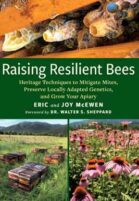
click image to zoom
Raising Resilient Bees offers a natural, sustainable, and replicable model for hive health and prodution, making it the comprehensive source for new and experienced beekeepers. Increasing pest and disease pressure presents an unprecedented challenge for the modem honey bee. Hobby and commercial beekeepers alike continue to experience troubling rates of mortality for their colonies, with deleterious consequences for the stability…
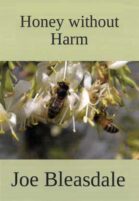
click image to zoom
Many who are concerned about ecology and the ethical treatment of animals argue that eating honey is harmful to bees and the environment. I believe there are valid reasons for their concerns in the way that most honey is produced. Here are some of the practices in worldwide use that I think exploit and harm bees: * Feeding sugar or…
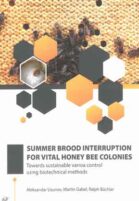
click image to zoom
Aleksander Uzunov
Martin Gabel
Ralph Büchler
The parasitic varroa mite remains the most serious problem for honey bee colonies worldwide. Despite various chemical treatments, many beekeepers still lose their colonies each year. This book sets out the authors' novel vision and practical steps on to how to manage bees for varroa control using a "nature based beekeeping" approach. With clear step-by-step charts on what to do…
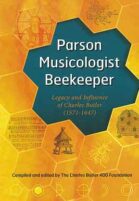
click image to zoom
Compiled and Edited by The Butler 400 Foundation
"Because reading 'The Feminine Monarchie' reveals rather little about the place, the time, and the social life of Charles Butler, it is most fortunate that members of the Basingstoke and District Beekeepers' Association have written and published [this] lovely book ... It provides a splendid view of his world." Tom Seeley. Four hundred years ago, a parson in the small…

click image to zoom
In Pursuit of Liquid Gold tells tells the fascinating story of the earliest beginnings of beekeeping in South West England with special mention of monastries, weather protection and the beekeepers of the past. It also includes details of surviving bee boles with a very detailed list of them in Devon, Cornwall, Somerset and Dorset. There are 9 colour pictures and,…
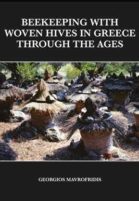
click image to zoom
This book is an original study on beekeeping which, apart of course from the existing modern literature, is based on four pillars: 1. the study of the relevant ancient Roman and Byzantine literature; 2. the study of the works by foreign travelers who visited Greece from the 17th to the 19th centuries to gather information on beekeeping and wicker hives;…
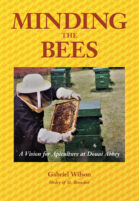
click image to zoom
All beekeepers will be aware of the important work carried out in the last century by Brother Adam and his helpers at the Benedictine monastery of Buckfast Abbey. Less is known, however, of beekeeping since 1933 at Buckfast's sister Benedictine monastery of Douai Abbey where an interest in the craft continues under the present beekeeper and monk, Dom Gabriel Wilson.…
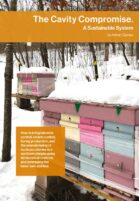
click image to zoom
How to integrate mite control, swarm control, honey production, and the overwintering of nucleus colonies in a northern climate using biotechnical controls and leveraging the bees’ own abilities. People with a beginner’s interest in bees are often disturbed to learn that their bees will die without some form of varroa mite control. I was, and some of mine did. Yet…
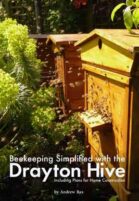
click image to zoom
The Drayton Hive is a hybrid of several established hive designs, combining some of their different strengths and avoiding some of the problems inherent in their use. It does not involve heavy lifting or the use of mechanical extractors for honey production; all-round, all-year insulation is built in, and it requires no extra space for winter storage. In the hive’s…
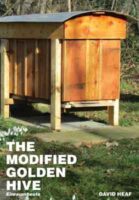
click image to zoom
Horizontal hives with frames are becoming increasingly popular in Europe and North America. One of these is the golden hive or Einraumbeute, developed at Mellifera Association in Germany, based on Dadant-size frames rotated ninety degrees. The resulting deep format allows for a vertically uninterrupted brood nest and a deep honey crown that is good for wintering. This book describes modifications…
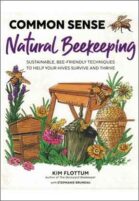
click image to zoom
Kim Flottum
Stephanie Bruneau
Beekeepers today have myriad choices to make that affect their bees' health and productivity. From housing to nutrition, to treating pests and diseases, Common Sense Natural Beekeeping introduces sustainable alternatives for natural hive management. Based on expert advice from Kim Flottum, editor emeritus of Bee Culture magazine and best-selling author of The Backyard Beekeeper, this book teaches holistic, sensible alternatives…
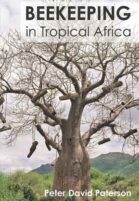
click image to zoom
Small-scale beekeeping is an attractive cash crop option for resource-poor farmers in the tropics. It demands little in the way of time, finances or natural resources, and the honey and beeswax harvested can be processed in the home and sold locally. At the same time, pollination by honeybees will increase the yields of many staple food crops. This book, through…
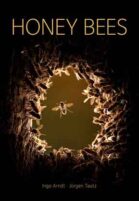
click image to zoom
Bees are a symbol of nature conservation. People all over the world are studying their fate and the threats posed to them by human activity and biodiversity loss. This stunning photographic record captures for the first time the unique way of life of the forest-dwelling honey bee. A lavish, picture-led book, this is a unique collaboration between Germany's leading bee…
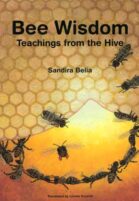
click image to zoom
The bee recalls us to our Soul. One wing in the wild world and one in the domestic, she offers herself as a creator of relationships, a guide, and a teacher of the complex and intriguing mysteries of the Universe. The bee is a companion, a counsellor, an ally. She unites the personal and the universal. Born from a beekeeping…
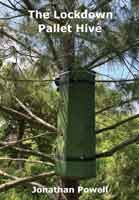
click image to zoom
When many people think of honey bees, they often think of lines of white boxes on the ground, and honey jars. However the natural habitat of a bee is not a box, and neither is it on the ground, and honey is really the bees food, needed to sustain the colony. There are still wild bee colonies, but they lack…
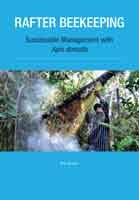
click image to zoom
Eric Guerin is a French biologist specialized in Asian native honey bee conservation and sustainable beekeeping. Based in Southeast Asia since 2008, he has made a special effort to document the work of honey hunters and rafter beekeeping communities, diffusing sustainable honey collection practices, introducing small-scale beekeeping as part of organic agriculture development, raising awareness on native honey bee conservation,…
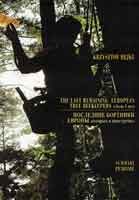
click image to zoom
500+ Wonderful Full Colour Images! Comes with a 20 page English language translation booklet. TO VIEW THE CONTENTS CLICK HERE The book focuses on the ancient tradition of tree beekeeping. Those who cultivate this tradition have the instinct and passion to follow the rhythms of nature, so that they can understand and respect the innate preferences of the bees. Tree…
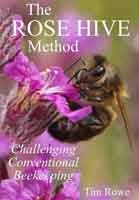
click image to zoom
TO VIEW THE CONTENTS CLICK HERE Ordinary beekeepers everywhere are contributing to the huge pressures honeybees are under. Though well-meaning and hard-working, they are part of the problem that is causing a massive decline in the population of honeybees throughout the world. In this book Tim Rowe challenges the hives and the hive-management we all take for granted, and offers…
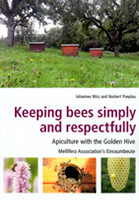
click image to zoom
Johannes Wirz
Norbert Poeplau
Keeping bees, because one loves nature or wants to harvest one's own honey, no longer has to remain a dream. The Golden Hive makes beekeeping simple - and is gentle on one's back, while the needs of the bee colony remain central. The German Non Governmental Organization - Mellifera - works to protect bees, humans, and nature. The Golden Hive,…

click image to zoom
Wereldwijd is er een groeiende interesse voor natuurlijke imkeren. Oude, vaak vergeten soorten bijenkast worden herontdekt en de gangbare imkermethodes die we nu al meer dan een eeuw kennen, worden in vraag gesteld. De Kast van het volk van Abbé Emile Warré (1867-1951) is een voorbeeld van zo’n oude bijenkast die op enorm veel bijval kan rekenen bij de imkers…
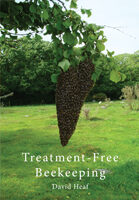
click image to zoom
Since varroa arrived in Europe and America in the 1980's, most beekeepers have found it necessary to treat their colonies with chemicals in order to avoid heavy colony losses. But a minority of beekeepers have managed to care for their colonies without the use of chemicals and have done so with not just tolerable colony losses, but with losses that…
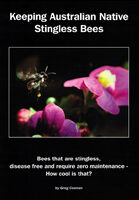
click image to zoom
Native stingless bees are one of nature's most wonderful gifts. Our passion is native beekeeping, and we enjoy making it easy for others to gain the knowledge and confidence to look after and be enriched by these fabulous little creatures. This is the sole purpose for preparing this guide. Based on my own years of experience and those of my…
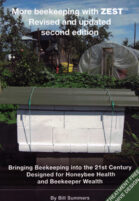
click image to zoom
ZEST (Zero Energy SusTainable) "Beekeepers require a user friendly hive that helps the bees keep warm in Winter, stops them ver heating in the Summer and reduces the risk of varroa and bee related diseases. It must be economical to buy, easy to construct, have minimal maintenance and storage issues, be a hive that is sustainable, that gives the bees…
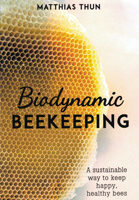
click image to zoom
"I commend this book to not only experienced beekeepers who would like to transition to a more bee-friendly approach, but also beginners who, while having access in some form to instruction about basic beekeeping, do not want to be steered into the conventional, mechanistic apiculture that new generations of beekeepers are increasingly finding unsatisfactory." David Heaf - Author of The…
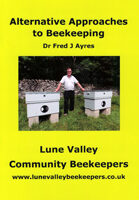
click image to zoom
A basic introduction to alternative forms of beekeeping practiced by some apiarists in the Lune Valley, Cumbria, UK. www.lunevalleybeekeepers.co.uk The notes in this booklet are intended for beekeepers who have some knowledge of conventional beekeeping but wish to explore less intensive and more bee friendly approaches. I have been keeping bees for 20 years and was initially trained as a…
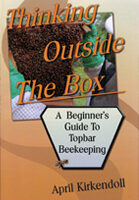
click image to zoom
A topbar hive is both ancient technology and newfangled trend. The main reason this "back-to-basics" hive is finding new supporters is its more natural approach to keeping bees and the novel concept of stepping back and allowing honeybees to make more of the hive decisions themselves. A topbar hive is, in itself, "thinking outside the box", not only because of…
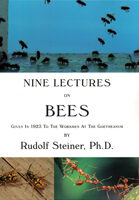
click image to zoom
These lectures were given by Rudolf Steiner to the workmen employed on the building of the Goetheanum. For some years Rudolf Steiner had almost every week devoted an hour to the spiritual welfare of those who laboured, whether as masons, smiths, plasterers or joiners, etc., in the erection of the building he had planned. They were an expression of the…
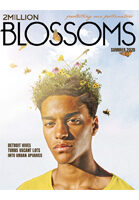
click image to zoom
1 Years Subscription – Print Edition, 4 Issues mailed to your door. Current issue No.3 Summer 2020. Northern Bee Books has been appointed the UK agents for this new American 100 page quarterly magazine. The magazine deals with all aspects of pollination and pollinators, of vital interest to this world. Subscribe today and learn more about our diverse pollinators and…
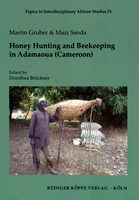
click image to zoom
This book is the first general overview of beekeeping and the honey trade in Sub-Saharan Africa, based on long-term ethnographic fieldwork in the Adamaoua Region of Central Cameroon. In the book you will find a detailed ethnographic account of the manifold connections between humans, bees and honey. The book is aimed at the academic community, as well as at beekeepers…
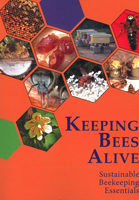
click image to zoom
In five decades entomologist Dr. Larry Connor has been a university professor, run a bee-breeding program and become established as a key voice in the beekeeping world. He has written dozens of articles for bee journals and a number of books, including Increase Essentials, Bee Sex Essentials, Queen Rearing Essentials, Bee-sentials: A Field Guide, Swarm Essentials (with Steve Repasky), and…
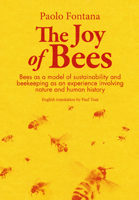
click image to zoom
Paolo Fontana is an Italian naturalist and researcher at the Edmund Mach Foundation in Trento (Italy). President of the World Biodiversity Association, he has also been a beekeeper for more than 30 years. As an entomologist he has taken part in numerous research expeditions, studying the faunas of Mediterranean as well as tropical countries and describing dozens of species new…
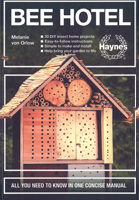
click image to zoom
Solitary bees and other beneficial insects need our help, not just on an international level but in every domestic garden, courtyard and balcony. Creating little homes for insects to lay their eggs in is a really easy way to help the insect population, and at the same time bring wildlife diversity and plant propagation to your outdoor spaces. This book…
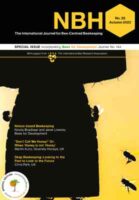
click image to zoom
1 Years Subscription - 4 Issues mailed to your door. Issue No. 25, Autumn 2022 Special Edition Incorporating Bees for Development Journal Inside this issue: • Nature-based Beekeeping, Nicola Bradbear and Janet Lowore • The Long, Downhill Road in Beekeeping, John Phipps, Greece • “Don’t Call Me Honey!” Or: When ‘Honey is not ‘Honey’, Martin Kunz, Diversity Honeys Ltd., UK…
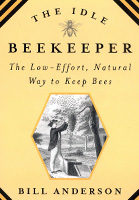
click image to zoom
From building a hive to harvesting honey, a top urban beekeepers shows how to keep bees the simple way. Global bee populations have been rapidly declining for years, and it's not just our honey supply that's at stake: the contribution of bees to the pollination of various crops is essential to human survival. But even in industrial apiaries, bees are…
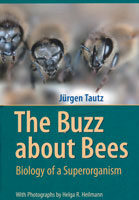
click image to zoom
With spectacularly beautiful colour photographs and an easily understandable text The Buzz about Bees tells the story of honeybees in a new perspective. Based on the latest data, notably from his own research group, Jürgen Tautz provides a wonderful insight into the realms of bees. “Whereas bee colonies were once seen as perfect societies of selfless workers and drones ruled…
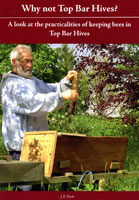
click image to zoom
Jim Slade suggests a system of beekeeping, based on years of experience, which is natural, sustainable and economical. There are also constructional details for those who wish to make their own hives.

click image to zoom
This book is about the inner workings of one of nature's most complex animal societies: the honey bee colony. It describes and illustrates the results of more than fifteen years of elegant experimental studies conducted by the author. In his investigations, Thomas Seeley suggests the answer to the question of how a colony of bees is organised to gather its…
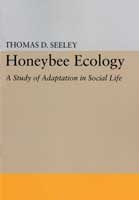
click image to zoom
Originally published in 1985 this book presents honeybees as a model system for investigating advanced social life among insects from an evolutionary perspective.
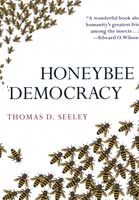
click image to zoom
"Honeybee Democracy is a wonderful book, beautifully written and illustrated, about humanity's greatest friend among the insects. The honeybee is important not only for its role in agriculture but for what it has taught us concerning the fundamental nature of complex social organisation. Seeley, its leading authority, here presents it to a broad readership, with scientific exactitude written in lyrical…
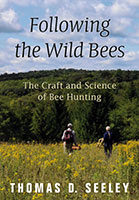
click image to zoom
Following the Wild Bees is a delightful foray into the pastime of bee hunting, an exhilarating outdoor activity that used to be practiced widely but which few people know about today. Thomas Seeley, a world authority on honey bees, vividly describes the history and science behind this lost pastime and how anyone can do it.
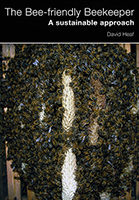
click image to zoom
In recent years, beekeepers on several continents have been suffering heavy losses of colonies. If we, systematically investigate factors causing the losses, we can justifiably ask whether the way in which honey bees are kept is part of the problem. Could hive design, frames, foundation, intrusion, artificial queen breeding, drone suppression, queen excluders, artificial feeding, medication, transhumance and overstocking -…
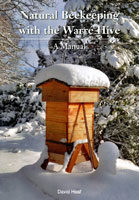
click image to zoom
This inspiring, practical, clearly laid out book contains everything you need in order to build and run a Warré hive, Topics include tools, siting, obtaining and hiving bees, monitoring, feeding, wintering, enlarging the hive, harvesting and extracting honey with simple kitchen equipment. An ideal book for the aspiring natural beekeeper.
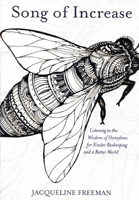
click image to zoom
"This is the most apicentric book on natural beekeeping that I have read .. Throughout the book she lets the bees speak for themselves as they tell us about things hitherto hidden from us, things which could provide a source of inspiration for research far into the future." David Heath (Author The Bee-Friendly Beekeeper & Natural Beekeeping with the Warré…
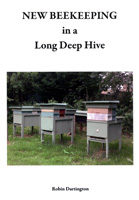
click image to zoom
In this work, the author explains his own use of a particular pattern of long hives which he has made to his own design, but which is derived from standard lines. The hives have been in use for ten years, which some bee keepers will say is not long enough to prove its efficiency. However, many different systems have been…
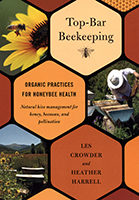
click image to zoom
Les Crowder
Heather Harrell
'This is an excellent guide for hobby beekeepers who wish to keep bees using top-bar hives. Drawing on his more than thirty years of beekeeping experience in New Mexico, author Les Crowder describes in detail the special comb-management techniques that this low-cost, but relatively intense, form of beekeeping requires. Top- Bar Beekeeping also provides an eloquent appeal for beekeepers to…
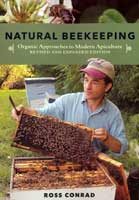
click image to zoom
"Natural Beekeeping is a wonderful book, beautifully written and illustrated, about how one can have healthy hives of bees without using synthetic pesticides, antibiotics, or artificial diets. Ross Conrad explains in fine detail that the key ingredients of organic beekeeping are disease- resistant stock, favourable apiary sites, and good colony management, plus a reverence and respect for the bees." -…
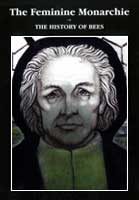
click image to zoom
The Feminine Monarchie is an early and remarkable work of English natural history, first published in 1609, and written by a scholarly country parson of wide ranging interests. Like the later Gilbert White of Selborne, a distant relation, Charles Butler had a deep curiosity about the natural world and recorded his discoveries methodically, in keeping with the growing scientific mood…
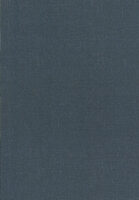
click image to zoom
A hard back facsimile of Butler 1623. Charles Butler (1560-1647), sometimes called the Father of English Beekeeping, was a logician, grammarist, author, minister (Vicar of Wootton St Lawrence, near Basingstoke, England), and an influential beekeeper. He was also an early proponent of English spelling reform. He observed that bees produce wax combs from scales of wax produced in their own…
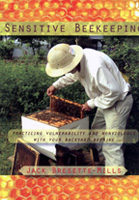
click image to zoom
Sensitive Beekeeping means many things: beekeeping without fear and without veil, beekeeping for the sake of the bee rather than for profit, learning to answer your own question about beekeeping. The further you go with it, the more it means. It's completely transformative: physically, mentally, spiritually. You can start beekeeping this way from the very beginning, and you will improve…
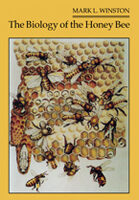
click image to zoom
One of the great books of the last 50 years. An update on the works of Ribbans and Free, this title should be on the bookshelf of all beekeepers. A very readable volume. From ancient cave paintings of honey bee nests to modern science’s richly diversified investigation of honey bee biology and its applications, the human imagination has long been…




















































